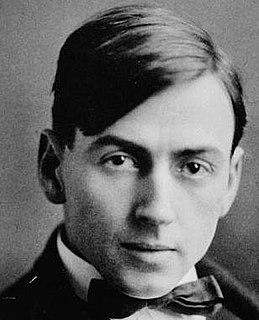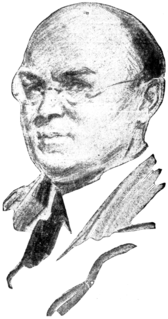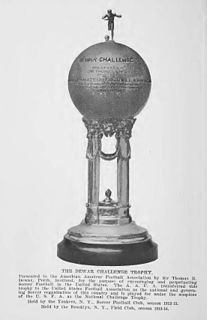Related Research Articles

Thomas John Thomson was a Canadian artist active in the early 20th century. During his short career, he produced roughly 400 oil sketches on small wood panels and approximately 50 larger works on canvas. His works consist almost entirely of landscapes, depicting trees, skies, lakes, and rivers. He used broad brush strokes and a liberal application of paint to capture the beauty and colour of the Ontario landscape. Thomson's accidental death by drowning at 39 shortly before the founding of the Group of Seven is seen as a tragedy for Canadian art.

Arthur Henderson was a British iron moulder and Labour politician. He was the first Labour cabinet minister, won the Nobel Peace Prize in 1934 and, uniquely, served three separate terms as Leader of the Labour Party in three different decades. He was popular among his colleagues, who called him "Uncle Arthur" in acknowledgement of his integrity, his devotion to the cause and his imperturbability. He was a transitional figure whose policies were, at first, close to those of the Liberal Party. The trades unions rejected his emphasis on arbitration and conciliation, and thwarted his goal of unifying the Labour Party and the trade unions.

Thomas Stanislaus MacDonagh was an Irish political activist, poet, playwright, educationalist and revolutionary leader. He was one of the seven leaders of the Easter Rising of 1916, a signatory of the Proclamation of the Irish Republic and Commandant of the 2nd Battalion, Dublin Brigade of the Irish Volunteers, which fought in Jacob's biscuit factory. He was executed for his part in the Rising at the age of thirty-eight.

James Edward Hervey MacDonald (1873–1932) was an English-Canadian artist, best known as a member of the Group of Seven who asserted a distinct national identity combined with a common heritage stemming from early modernism in Europe in the early twentieth century. He was the father of the illustrator, graphic artist and designer Thoreau MacDonald.

Edwin Balmer was an American science fiction and mystery writer.

The 1915–16 National Challenge Cup was the third tournament of the modern-day Lamar Hunt U.S. Open Cup. Bethlehem Steel won its second consecutive championship. The entries for the competition were to be made by midnight September 30, 1915. The draw for the qualifying and first rounds was made on October 2, 1915. The tournament schedule was originally set for the qualifying round to take place on or before October 24; first round, November 14; second round, December 12; third round, January 16, 1916; fourth round, March 5; semis, April 2, and final on April 30.

The Curtiss Flying School was started by Glenn Curtiss to compete against the Wright Flying School of the Wright brothers. The first example was located in San Diego, California.
William Josiah MacDonald was a politician from the U.S. state of Michigan.
The Speaker of the Legislative Assembly of Prince Edward Island is the presiding officer of the provincial legislature.
The 2nd Battle Squadron was a naval squadron of the British Royal Navy consisting of battleships. The 2nd Battle Squadron was initially part of the Royal Navy's Grand Fleet. After World War I the Grand Fleet was reverted to its original name, the Atlantic Fleet. The squadron changed composition often as ships were damaged, retired or transferred.
The Woman Who Did is a 1915 British silent drama film directed by Walter West and starring Eve Balfour, Thomas H. MacDonald and George Foley. It was adapted from the 1895 novel The Woman Who Did by Grant Allen. It follows the life of Herminia Barton, a Cambridge-educated woman as she tries to make it in the world by herself.
Burnt Wings is a 1916 British silent drama film directed by Walter West and starring Eve Balfour, Joseph Tozer and Thomas H. MacDonald. It was adapted from the 1909 novel Burnt Wings by Mrs Stanley Wrench. A woman decides to bring up a baby that her husband has had with his mistress.
The Hard Way is a 1916 British silent crime film directed by Walter West and starring Muriel Martin-Harvey, Joseph Tozer and Thomas H. MacDonald. It was the first film to be shot at Broadwest's newly acquired Walthamstow studios. Its plot concerns an English artist's wife who commits bigamy in Paris.
Five Nights is a 1915 British silent romance film directed by Bert Haldane and starring Eve Balfour, Thomas H. MacDonald and Sybil de Bray. It was based on a novel of the same title by Victoria Cross.
Members of the New South Wales Legislative Council who served from 1913 to 1917 were appointed for life by the Governor on the advice of the Premier. This list includes members between the election on 6 December 1913 and the election on 24 March 1917. The President was Sir Francis Suttor until his death in April 1915 and then Fred Flowers.</ref>

Bison Film Company is an American film studio established in 1909 and disestablished in 1917.